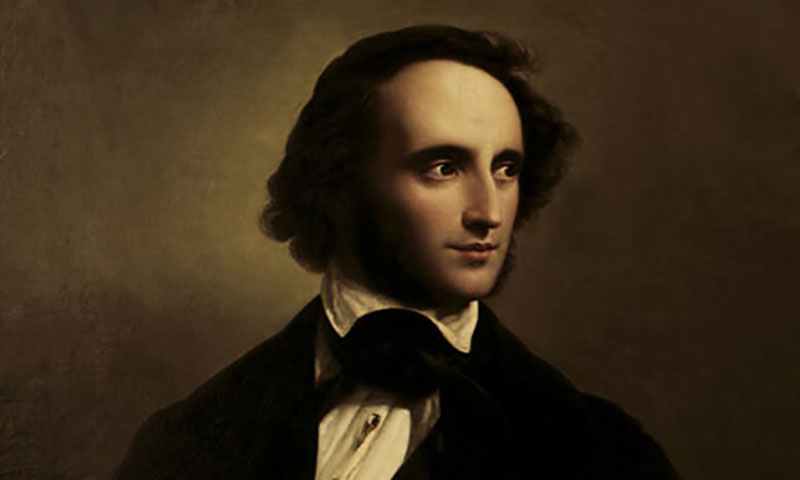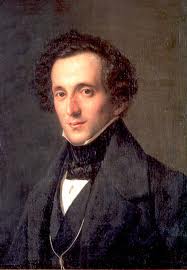Introduction
Felix Mendelssohn Bartholdy, a prodigious talent of the Romantic era, left an indelible mark on the world of classical music. His compositions, characterized by lyrical melodies, brilliant orchestration, and emotional depth, continue to captivate audiences worldwide. In this article, we explore ten of Mendelssohn’s most celebrated works, showcasing the breadth and brilliance of his musical genius.
1. Overture to A Midsummer Night’s Dream, Op. 21
Written when Mendelssohn was just 17 years old, the “Overture to A Midsummer Night’s Dream” remains one of his most enchanting pieces. This composition beautifully captures the whimsical and magical essence of Shakespeare’s play, featuring the iconic “Wedding March,” which has become a staple in wedding ceremonies.
2. Violin Concerto in E Minor, Op. 64
Completed in 1844, Mendelssohn’s Violin Concerto in E Minor is a cornerstone of the violin repertoire. Its lyrical melodies, virtuosic demands, and seamless integration between soloist and orchestra make it a favorite among performers and audiences alike.
3. Symphony No. 4 in A Major, Op. 90 “Italian”
Inspired by Mendelssohn’s travels in Italy, the “Italian” Symphony is a vibrant and colorful work. Its lively first movement, serene second movement, and spirited finale reflect the composer’s impressions of the Italian landscape and culture.
4. Songs Without Words, Op. 19
A collection of short piano pieces, “Songs Without Words” exemplifies Mendelssohn’s gift for lyrical expression. These charming miniatures, each with its own distinct character, showcase the composer’s ability to convey deep emotions through simple, yet evocative, musical language.
5. Elijah, Op. 70
Mendelssohn’s oratorio “Elijah” is a monumental work that highlights his mastery of choral and orchestral writing. Premiered in 1846, this dramatic and powerful piece recounts the biblical story of the prophet Elijah, featuring stunning choruses, arias, and orchestral interludes.
6. String Octet in E-flat Major, Op. 20
Composed when Mendelssohn was only 16, the String Octet is a remarkable achievement. Its energetic and intricate first movement, lyrical second movement, and exuberant finale demonstrate the young composer’s extraordinary talent and maturity.
7. Hebrides Overture (Fingal’s Cave), Op. 26
Inspired by Mendelssohn’s visit to the Scottish Hebrides islands, the “Hebrides Overture” is a tone poem that vividly depicts the rugged beauty of Fingal’s Cave. The piece’s evocative themes and masterful orchestration make it a beloved concert favorite.
8. Symphony No. 3 in A Minor, Op. 56 “Scottish”
Another work inspired by Mendelssohn’s travels, the “Scottish” Symphony captures the dramatic landscapes and rich history of Scotland. Its brooding opening, lyrical second movement, and triumphant finale create a compelling musical narrative.
9. Piano Trio No. 1 in D Minor, Op. 49
The Piano Trio No. 1 in D Minor is a masterpiece of chamber music. Its passionate first movement, lyrical andante, playful scherzo, and energetic finale showcase Mendelssohn’s melodic gift and structural ingenuity.
10. Wedding March from A Midsummer Night’s Dream, Op. 61
Perhaps one of Mendelssohn’s most recognizable works, the “Wedding March” from his incidental music to “A Midsummer Night’s Dream” has become synonymous with matrimonial celebrations. Its majestic fanfares and joyful melodies make it an enduring favorite.
Conclusion
Felix Mendelssohn Bartholdy’s compositions continue to resonate with listeners, offering a timeless blend of beauty, emotion, and technical brilliance. From symphonies and concertos to chamber music and choral works, Mendelssohn’s legacy as one of the great composers of the Romantic era is firmly established through these ten remarkable pieces. Whether you are a seasoned classical music enthusiast or a newcomer to his work, Mendelssohn’s music promises to delight and inspire.


Comments are closed